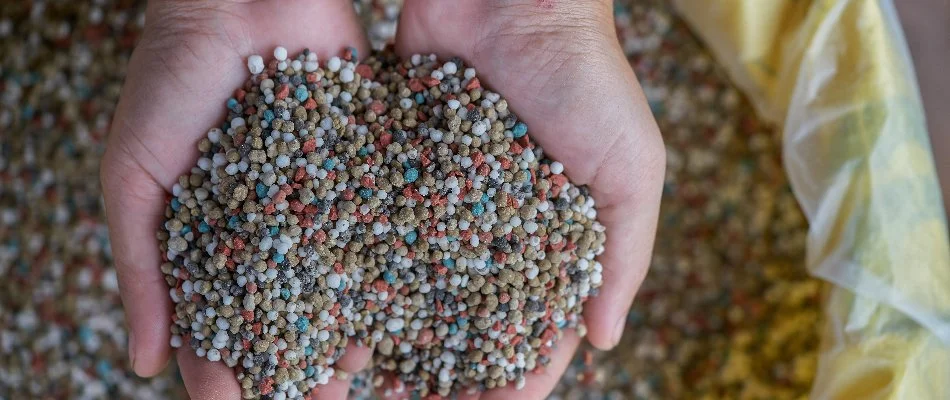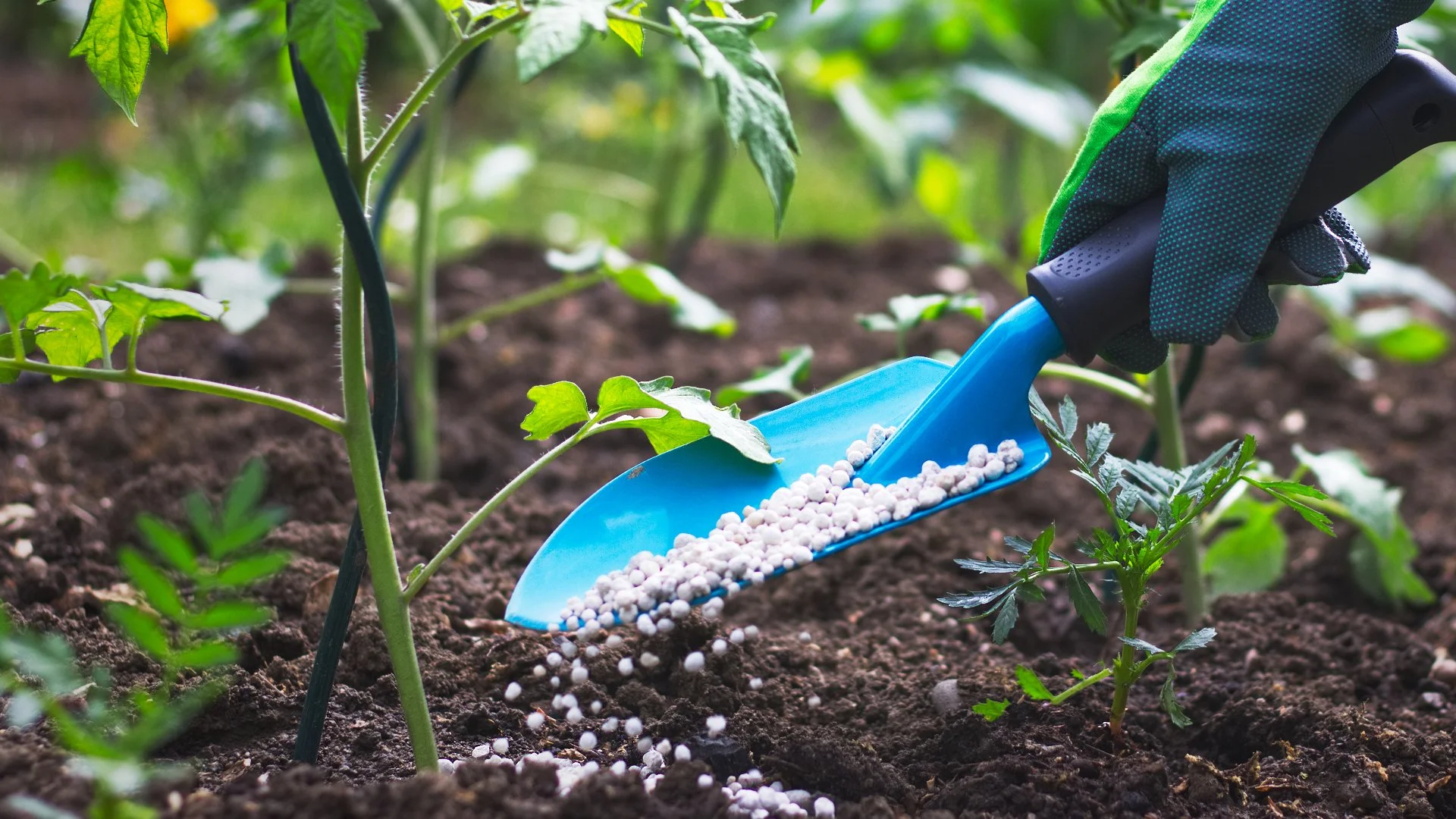
While most discussions about the nutrient content of fertilizer focus on nitrogen, phosphorus, and potassium (sometimes referred to as “the Big Three”), other vital nutrients commonly found in fertilizer include calcium, iron, and magnesium. Calcium strengthens cell walls and supports overall plant structure, iron is essential for chlorophyll production and energy transfer, and magnesium is involved in photosynthesis and various metabolic processes. Including these nutrients in plant fertilizer ensures healthy growth, strong root development, efficient photosynthesis, and improved overall plant health. If the fertilizer you’re using on your property in Iowa or South Dakota doesn’t have enough calcium, iron, or magnesium, it can lead to various issues, such as stunted growth, poor yield, and increased susceptibility to diseases and stresses. Therefore, it’s important to consider these minerals when selecting and applying fertilizers to your residential or commercial property.
Calcium is important for promoting sturdy plant structure.
Calcium is an essential mineral for plants that plays a crucial role in their overall health and development. It helps to build strong cell walls, providing structural support to the plant. Calcium is involved in various physiological processes, such as enzyme activity, nutrient uptake, and the transportation of sugars and other molecules within the plant.
The benefits of calcium in plant fertilizer are significant. Adequate calcium levels promote sturdy plant structure, reducing the risk of diseases and pests. It also enhances root development and improves the plant's ability to absorb nutrients, water, and other essential elements.
When there is not enough calcium in the fertilizer, plants can suffer from several issues. Calcium deficiency can lead to stunted growth, weak stems, and poor root development. Lack of calcium can make plants more susceptible to diseases and environmental stresses, compromising their overall health and productivity.
When fruiting plants lack sufficient calcium, they often experience “blossom-end rot” in their fruits, which causes the bottoms of the fruits and vegetables to become dark and sunken.
Iron helps plants produce energy and keeps them green and vibrant.
Iron is a vital micronutrient that is essential for healthy plant growth. It plays a crucial role in chlorophyll production, which is responsible for the green color in plants and is essential for photosynthesis. Iron is involved in energy transfer, enzyme activation, and the synthesis of various proteins within the plant.
The benefits of iron in fertilizer are significant. Adequate iron levels promote vibrant, green foliage and ensure efficient photosynthesis. Iron enhances a plant's ability to produce energy, withstand stress, and grow strong roots. Iron also helps with the formation of chloroplasts, the organelles responsible for photosynthesis, improving overall plant growth and productivity.
Insufficient iron in the fertilizer can lead to iron deficiency chlorosis, a condition characterized by yellowing leaves with green veins. This chlorosis affects the plant's ability to produce energy, resulting in weak growth, reduced yield, and poor plant health. A lack of iron can also make plants more susceptible to diseases and environmental stresses, limiting their ability to thrive.
Magnesium helps plants metabolize vital nutrients.
Magnesium is an essential macronutrient that is crucial for plant growth and development. It is a vital component of chlorophyll molecules, contributing to the green color in plants and enabling photosynthesis. Magnesium is involved in various metabolic processes, including the production of sugars, proteins, and DNA within the plant.
Adequate magnesium levels promote healthy leaf development and efficient photosynthesis. It enhances nutrient absorption, root growth, and the production of enzymes and energy. Magnesium also plays a role in the activation of numerous plant enzymes, contributing to overall plant health and vigor.
Insufficient magnesium in the fertilizer can lead to magnesium deficiency, characterized by yellowing or browning of older leaves while the veins remain green. This condition affects the plant's ability to produce energy and carry out essential metabolic functions, resulting in reduced growth, stunted development, and poor overall health.
Give us a call today to schedule our tree and shrub fertilization service.
At Sharp Lawn Care, we understand the importance of maintaining the health and beauty of your plants, which is why we offer a tree and shrub fertilization service. When you schedule this service, we will fertilize your plants twice per year to ensure they always have the nutrients they need to thrive. We offer this service to property owners in Sioux Falls, SD and Sioux City, IA, as well as the surrounding areas in South Dakota, such as Tea, Harrisburg, and Brandon. If you're in Iowa you can reach us at (712) 253-8024 and if you're in South Dakota, you can reach us at (605) 251-6880 to schedule this service today!




Comments (0)
Thanks for your comment!
Thanks for your feedback! Your comments have been successfully submitted! Please note, all comments require admin approval prior to display.
Error submitting comment!
There is a problem with your comment, please see below and try again.